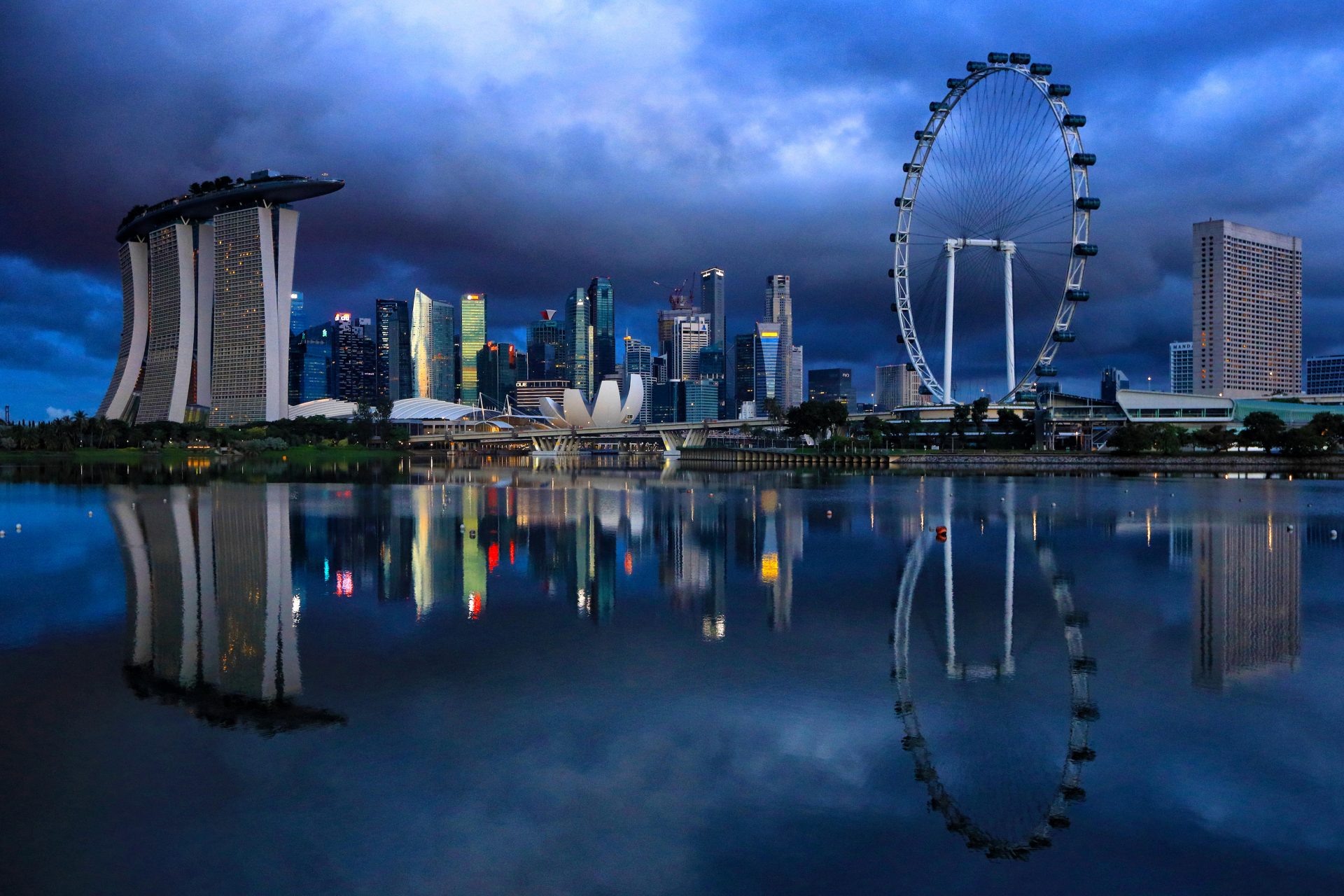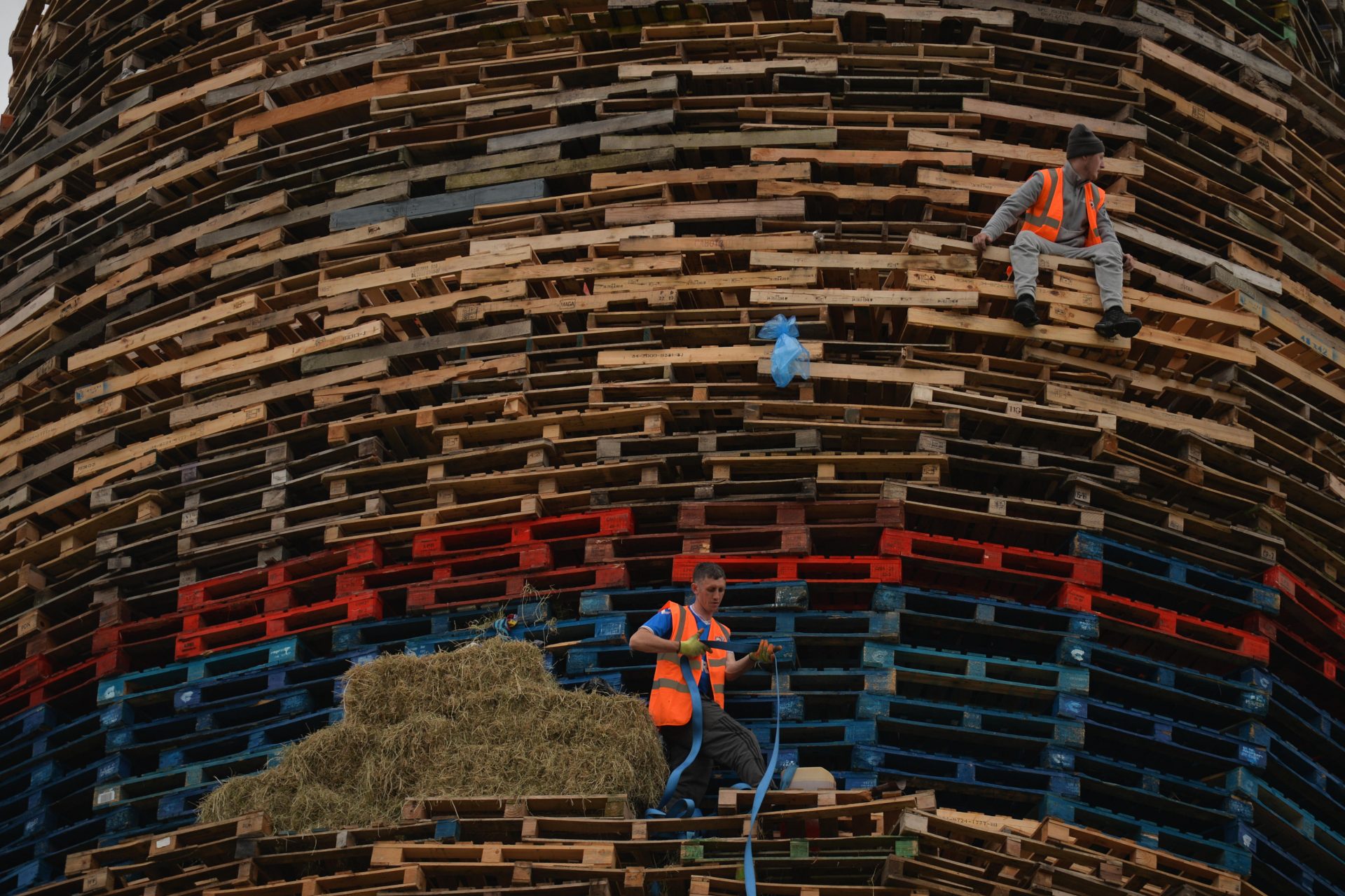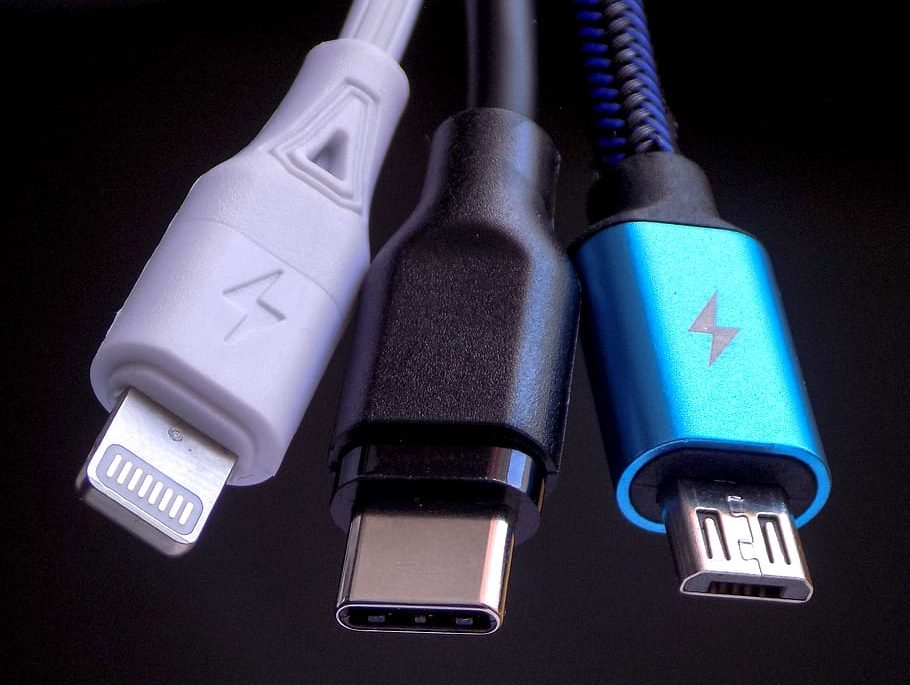The shopfront was decorated with a silhouette image of peasant women in conical hats and ao dai, the traditional Vietnamese tunic dress, indicating the nationality of the workers inside.
A few doors down, red lanterns hanging outside another brothel showed that the women here were from mainland China.
The muggy air was ripe with the aroma of tropical fruit, mingled with cooking smells from food stalls. We stopped at a restaurant that was little more than an alcove facing onto the street, which specialised in dishes of creamy white soy milk soup accompanied by sticks of fried dough.
Down a shadowy passageway, away from the neon-lit brothel façades, dozens of men gathered around a card game as lookouts kept watch for police.
Geylang, a grid of narrow streets on the eastern fringes of central Singapore, was a glimpse of an older city, a world of migrant labourers and sailors in search of casual sex and the thrill of a card game.
The way that countries manage their relationship with vice, from prostitution to gambling and illegal drugs, offers an insight into the kind of society their citizens want to live in.
Singapore’s ethical boundaries have shifted over time, but unlike most democracies, the country’s rulers have taken a hierarchical approach to deciding how rapidly society should be allowed to change.
In economic affairs, Singapore’s government wants to be in the vanguard, pre-empting rivals by rapidly adopting new technology and encouraging the growth of new sectors. Social changes are deliberately taken at a slower pace.
These two desires, to seize commercial advantage while staying buttoned-up, come into conflict over the sex industry, where the demand created by tourists and business visitors clashes with the imperative to preserve a nation’s modesty.
Prim Singapore has a disreputable history. Banned for its graphic detail, the 1979 film Saint Jack, shot in Singapore’s red light district, recalls a world in which Chinatown gangsters dominated the brothel industry, while the city centre thoroughfare Bugis Street was nicknamed ‘boogie street’ and was famed for the glamour of its transgender women, some of whom walked the street in drag.
Photographs from the era show young Caucasian men, with the wild-eyed look of servicemen off the leash for the night, dancing naked on the flat roof of a Bugis Street public toilet, cones of burning newspaper clenched between their buttocks.
The wild side of the city was tamed with the same determination that Singapore’s rulers brought to tackling disease and clearing slums. The authorities began to restrict transsexual prostitution on Bugis Street in the 1980s, and in 1985 the original street was demolished to make way for a subway station.
Prostitution is not illegal in modern Singapore, though soliciting, pimping and running a brothel are; the brothels of Geylang and Singapore’s other red light districts are tolerated as an act of expediency.
Sherry Sherqueshaa began working in Singapore’s sex trade soon after she decided to transition from male to female at the age of 18. Someone who never felt they fitted in, either with their male or female classmates, Sherqueshaa dropped out of school at 16 without qualifications. She worked on the street, beginning at Woodlands, a district on Singapore’s northern periphery, before moving to Geylang.
The fact that she was born male added to the risk she faced, as she could be charged by police with violating Section 377a of the penal code, which criminalises sex between adult males. “I knew that I was putting myself at big risk,” Sherqueshaa told me. “These clients could rob me or even assault me. I know that I can’t make any report. I thought that I should be doing anything they ask me to.”
Singaporean women like Sherqueshaa, however, are rarely seen soliciting sex on the street these days. Over the years prostitution has become stigmatised and the sex trade in Singapore has become dominated by foreign workers.
Just as the construction of roads and other infrastructure is undertaken by male migrant workers from mainland China and South Asia, female migrants from the same regions have been drafted into the sex industry.
This echoes the gender divide of Singapore’s colonial era, when men from China and India laboured on docks or farms, while women from China and Japan were trafficked to work in brothels.
Sex, drugs and gambling are unlike other industries. All three challenge a conservative view of society that is centred on the family and underpinned by thrift and personal responsibility.
Prostitution and the drug trade, especially in societies where they are illegal, rely on a vulnerable swath of workers to service clients or ferry drugs. Drugs and gambling threaten to tip into destructive addictions, with a potentially corrosive effect on a society where discipline is prized.
Singapore has taken radically different approaches to managing the potential harm from all three vices, while absorbing some of the benefits. The government’s shifting attitude to gambling, in particular, shows how the state is open to change when it is driven by an economic imperative.
Singapore’s first prime minister Lee Kuan Yew opposed gambling for years. His father, a storekeeper and depot manager for the oil company Shell, was a problem gambler who pestered his wife to let him pawn her jewellery in order to feed his habit.
Lee feared gambling would encourage a get-rich-quick mentality and erode the Singaporean work ethic. For years, proposals to open a casino in Singapore were turned down. Then, in 2005, the government changed its mind. Ministers had become anxious that Singapore was losing appeal as a tourist destination. Sanctioning the opening of casinos would transform visitors’ perceptions as well as helping to diversify Singapore’s economy.
Lee, by then the minister mentor of a government led by his elder son, gave the decision his seal of approval. His reforms had created a First World city, Lee said. But a new Singapore was needed that combined this efficiency with sufficient panache to attract global talent. It was time for the country to let off a little steam.
Christian churches argued that tax revenues would not outweigh the economic and social damage of gambling. The government pushed ahead regardless.
Of all the vices, Singapore takes the most implacable moral line on drugs. As global moves to legalise the recreational use of cannabis gather pace, Singapore stands out for its refusal to countenance any softening of the line.
In 1975 the death penalty became mandatory for the manufacture, import or trafficking of controlled substances including cannabis, amphetamines and opioids, above certain quantities. The quantities involved are tiny and likely to attract the mildest sentences in western European countries: being caught with more than 200g of cannabis resin or more than 30g of cocaine brings mandatory execution in Singapore.
The harsh nature of Singapore’s drug laws was underlined in 2007, when the country executed Nigerian footballer Iwuchukwu Amara Tochi.
Tochi, 21 when the sentence was carried out, had been arrested at Changi airport three years earlier carrying capsules containing just over 700g of heroin. The young man hoped to win a contract with a Singapore football club. He claimed that he did not know the capsules contained heroin, and said he had been paid to carry ‘herbs’ by a man in Pakistan, who asked him to deliver them to a sick friend in Singapore.
The judge at his trial accepted there was ‘no direct evidence’ that Tochi knew the capsules contained heroin, but ruled that he had ‘wilfully’ turned a blind eye to the contents of the capsules.
Singapore brought in reforms in 2013 that gave the courts discretion over sentencing. If a defendant could prove his role had been to act as a courier, there was a chance he would be spared the noose. But the country continues to carry out several executions a year, the majority of them for drug offences. The sentence is always carried out by hanging, at dawn, inside Changi prison.
Opium addiction was rampant in colonial Singapore, where around a third of the Singapore Chinese population were habitual opium smokers by the mid-19th century. Exhausted dock-workers and rickshaw-pullers would often buy the residue left by another smoker, seeking a cheap fix at the end of a day’s labour.
Prostitution is tolerated in Singapore as a fact of life. Casinos have now been embraced as a source of revenue. On drugs, the prevailing wisdom remains: ‘Just Say No’. Given the historical damage that opium in particular has inflicted, this risk-averse official attitude may be understandable, but it also suggests a lack of faith in its people.
Jeevan Vasagar is the author of Lion City: Singapore and the Invention of Modern Asia, published by Little, Brown, £18.99



